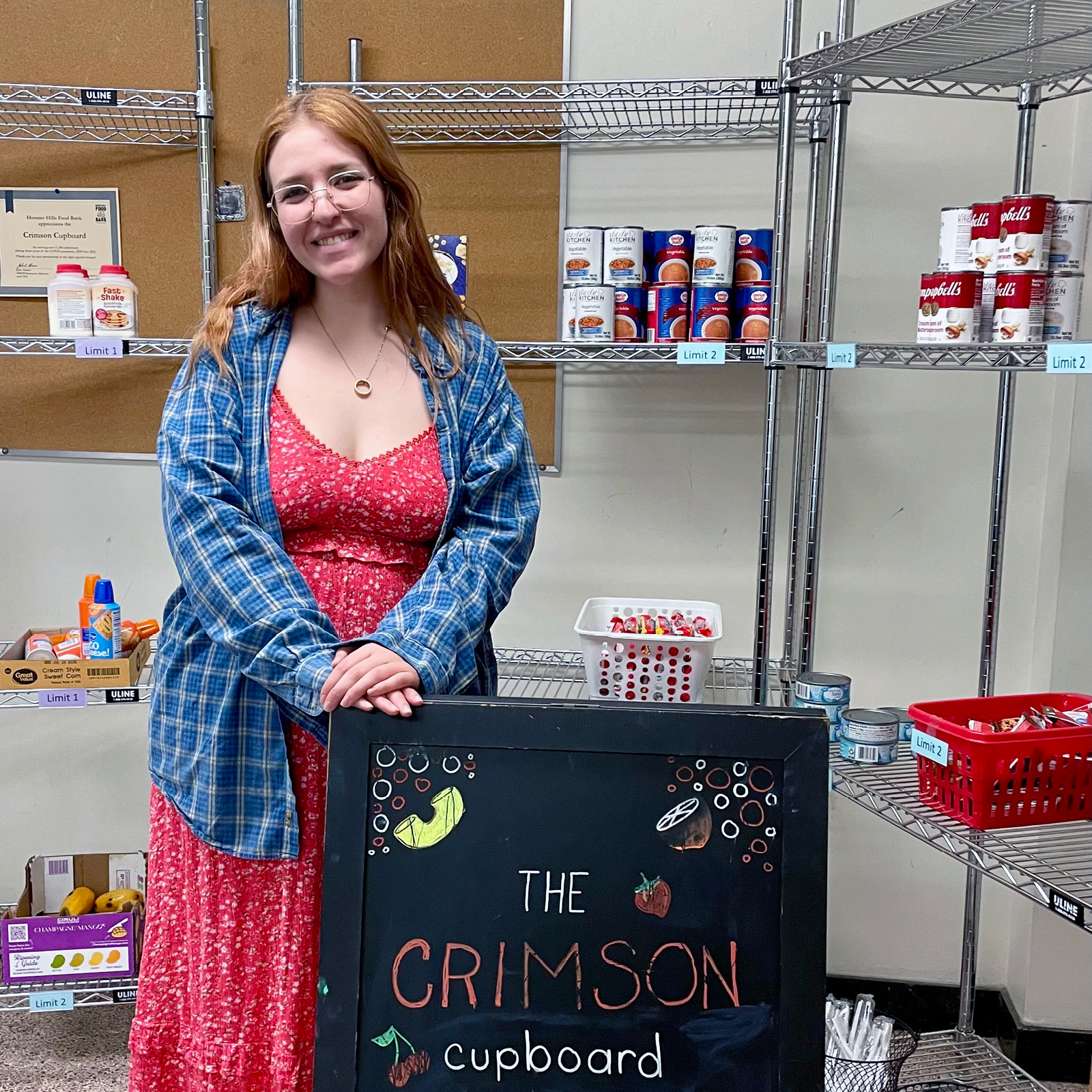Growing up in Monroeville, Indiana—a small, rural town on the east side of the state—Iris Sorrell has long understood the power of community and the unique challenges rural areas face.
This understanding has been further deepened through an O’Neill School of Public and Environmental Affairs Master of Science in Environmental Science capstone, where she joined a team of 16 students working under the direction of Associate Professor James Farmer. Their project focused on evaluating the emergency food relief system in Knox County, Indiana.
Iris's interest in addressing food insecurity began during her senior year of her undergraduate program when she saw her campus food pantry shut down at a time when students were in critical need.
“It wasn’t just an abstract concept anymore—it was something directly affecting my closest friends,” she shared. This experience fueled her to continue to advocate for sufficient access to food.
Iris and her group focused on analyzing food policy at the state and federal levels, identifying service gaps in programs like SNAP and EBT, and highlighting underutilized resources in Knox County. Their primary objective was to turn this research into something meaningful for the local health department.
As Iris explained, “the big thing we tried to give, besides all of that information, was recommendations of directions to go forward.”
The final analysis of the food system in Knox County included an assessment of the Knox County food landscape and a final deliverable that included a detailed inventory of local food pantries, a snapshot of federal food aid programs as of April 2025, and a series of proposals and recommendations to help guide future action, such as establishing an AmeriCorps position and forming a city-appointed food council.


